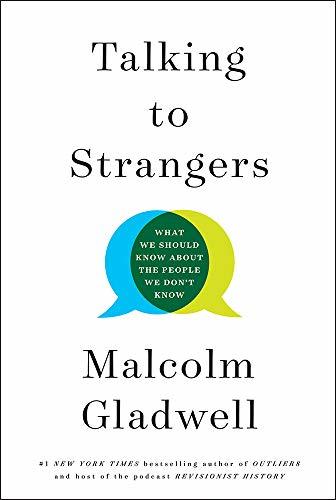Title: "Talking to Strangers: What We Should Know About the People We Don’t Know"
In "Talking to Strangers," acclaimed author and journalist Malcolm Gladwell dives into the complexities of human communication, unraveling the intricacies of how we perceive and interact with people we don't know. Published in 2019, the book delves into high-profile cases, psychological experiments, and real-world scenarios to shed light on the often misunderstood dynamics of trust, deception, and miscommunication.
Gladwell's signature storytelling style shines throughout the book, making complex psychological concepts accessible to a broad audience. By dissecting cases such as the trial of Amanda Knox, the arrest of Sandra Bland, and the interactions leading to the infamous Ponzi scheme of Bernie Madoff, Gladwell crafts a narrative that is both engaging and thought-provoking. These real-world examples serve as poignant illustrations of the challenges inherent in understanding strangers.
One of the book's key contributions is its exploration of the default stance humans take when interacting with strangers—the "default to truth" concept. Gladwell contends that our natural inclination is to believe others, leading to vulnerabilities in our ability to detect deception. He weaves in psychological research, historical anecdotes, and interviews to support his argument, challenging readers to reconsider their assumptions about trust and communication.
The chapter on "coupling," exploring how situational factors influence behavior, is particularly enlightening. Gladwell contends that understanding the context in which individuals operate is crucial for interpreting their actions, emphasizing the limitations of relying solely on character judgments.
While the book provides valuable insights into the challenges of understanding strangers, some readers may find its conclusions and overarching themes lacking in prescriptive guidance. Gladwell adeptly raises questions and highlights complexities, but the book leaves readers pondering the practical implications and actionable steps for improving communication and avoiding misunderstandings.
In conclusion, "Talking to Strangers" is a compelling exploration of the intricacies involved in human interaction. Malcolm Gladwell's storytelling prowess and knack for unraveling complex topics make the book an engaging read. For those seeking a thought-provoking examination of the challenges in understanding strangers, this book provides valuable insights that encourage reflection on the intricacies of human communication and the biases that influence our perceptions.

Comments
Post a Comment